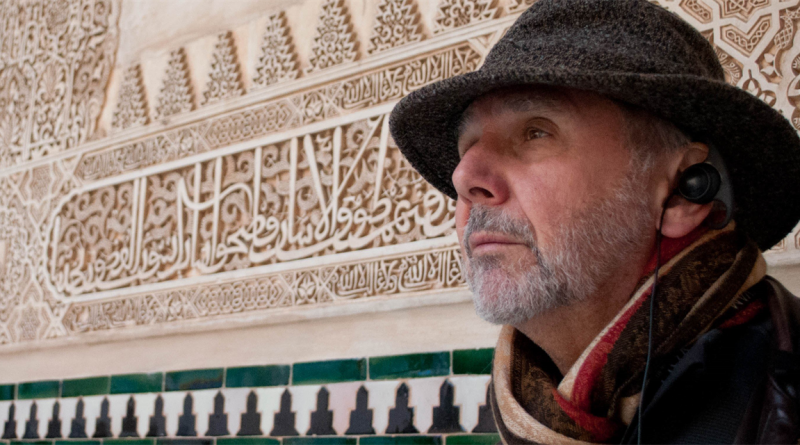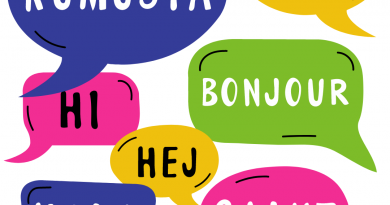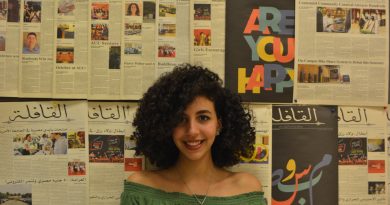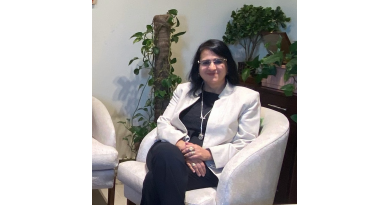“Target: Hollywood” Merges Journalistic Reality with Fiction
By: Mariam Rabah
@mariamrabah10
It took award-winning journalist Lawrence Pintak nearly 30 years to finish his first novel, Target: Hollywood, a work of historical fiction about two cousins in Lebanon, one of whom harbors a deep hatred for the United States to the point of resorting to terrorism.
The other works with the CIA in a bid to stop him.
“Let me tell you a little secret; while Target: Hollywood is my most recent published book, it was among the first books I wrote; It was actually written in the 80s shortly after I spent five years as CBS Middle East correspondent,” Pintak revealed during a segment of Engaging the Big Questions, an integrative learning initiative (ILI) created by the Academy of Liberal Arts after AUC’s shift to online learning during COVID-19.
Pintak said he was inspired by his war zone correspondence in Beirut where he witnessed the birth of Hezbollah [a Lebanese Shia Islamist party and militant group] because of American policy.
“I came away convinced that terrorism was not going to not end in Beirut and ultimately it would come to the shores of US; so, the plot of Target: Hollywood is about a terrorist attack in the US written a good 15 years before 9/11 as it was clear to me that it would happen,” Pintak said.
Event host Doris Jones, a senior instructor at the Department of Rhetoric and Composition and the ILI coordinator, said she believes students would find the book intriguing and inspire them to become writers themselves.
“[Reading the book] will engage their minds in a smorgasbord of ideas … and ask more questions about what it takes to be a good writer of fiction, and inspire them to stop and say ‘I’m gonna put my smartphone down, I’m gonna pick up a book today,’” Jones told The Caravan.
Pintak wears many hats; in addition to working as a Middle East-based journalist, he is also the founding dean of The Edward R. Murrow College of Communication at Washington State University (2009-2016). He was also the director of the Kamal Adham Center for Journalism Training and Research at AUC, where he founded the online journal Arab Media and Society.
He clarified that Hollywood was used as the target because it generates publicity. Yet, that was not enough to publish the book: after the American publisher Doubleday was bought by a German publisher who didn’t want to ‘buy first novels from writers,’ Pintak’s contract was canceled. Other publishers refused the book as it was a time “no one cared about terrorism.”
The Caravan asked Pintak about the evolution of how terrorism is perceived since the 1980s.
“Now we have all different flavors and colors of terrorism all over the world including white nationalist American terrorism; what didn’t change is that we, as the West, continue to do things that radicalize people, that generate terrorism, that generate extremism,” he answered.
Target: Hollywood’s plot is not only about terrorism but also about how people become radicalized, showing the difference between good and bad.
“What I was trying to do was countering this narrative that all Shia, all Muslims, all Arabs are terrorists; so, we had the parallel of the bad cousin and the good cousin,” Pintak explained.
Jones finds the book captivating from the opening page.
“It’s moving to the point I thought I was sitting in a movie theater; the pace of the narrative is so quick that you are immediately introduced to the characters and the difference between their worlds,” Jones said.
Yet, the “world’s differences” were not only in the book’s plot but in reality, as well. Pintak himself was navigating the world of writing nonfiction to the world of writing fiction bringing with him years of experience in journalism. He says a novel takes much more time and effort to produce than nonfiction.
It took him only six weeks to write his latest nonfiction novel America & Islam. But journalists get used to writing on deadlines; ultimately, there is a different process that includes evolving, a lot of changes and edits.
“We use reality and then create a ‘what if’ within the reality. I went to Hollywood as I was researching the book, and I went to the library at Berkeley University of California where the bad guys in the story lead students and create ‘a bad thing’ to use in an attack, to describe everything in detail,” Pintak said.
Pintak announced in the talk that he is currently writing another nonfiction book.




